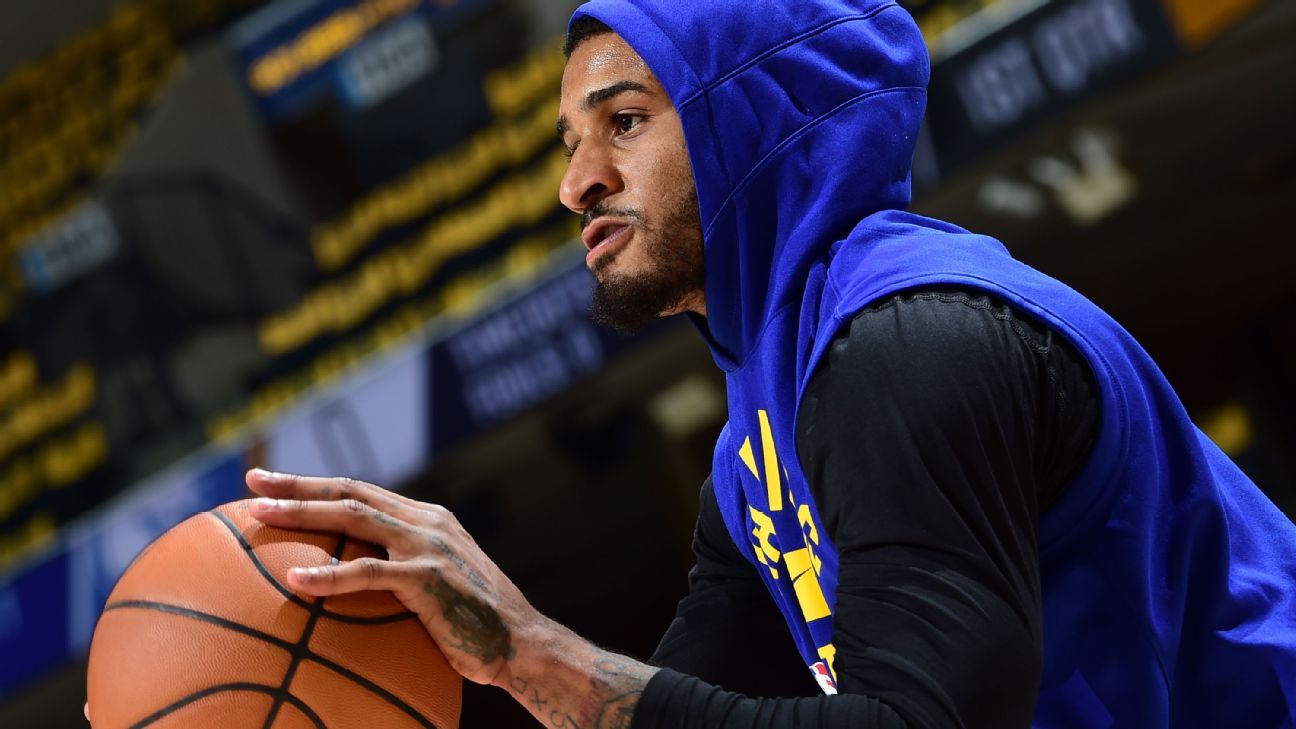LOS ANGELES — Gary Payton II didn’t really want to leave Golden State during the offseason. Following a six-year journey that saw him play in the G League and on numerous 10-day contracts and two-way assignments, he felt he’d finally found a home.
So, when he found out he had been traded back to the Warriors by the Portland Trail Blazers just 10 minutes before the close of the Feb. 9 trade deadline, he was ecstatic.
But, that euphoria was replaced with concern just a few days later, as the Warriors raised concerns following his initial physical exam.
Payton wasn’t surprised when the team flagged his physical. He had been suffering from pain in his abdomen following core muscle surgery he had during the offseason after joining the Trail Blazers in free agency. He had never fully recovered.
“I knew where my body was and how it was,” Payton said Wednesday after practice, his first time speaking to reporters since the deadline. “It was out of my hands. I just had to tell them what it was and go from there.”
Payton missed the first 35 games of the Trail Blazers’ regular season before making his debut. According to Warriors general manager Bob Myers, that didn’t raise any red flags for them heading into the deadline, as they thought he was healthy by the point.
However, Payton had been taking the pain-reliever Toradol to manage the pain, something Portland did not disclose to Golden State before the deal was made, sources told ESPN’s Adrian Wojnarowski.
“That was me being a competitor, just wanting to get out there,” Payton said. “No shots, though. Just had to get through it and get it done. The medical stuff wasn’t that big of a deal. I wanted to play and go out there and help my teammates and coaches. I was a bigger factor on the court than off the court. Me being 50% was better than nothing. I just had to get out there and help my team try to win.”
After finding out about Payton’s lingering pain and use of Toradol, Golden State initially held up the trade — which sent James Wiseman to Detroit, Saddiq Bey to Atlanta and Kevin Knox to Portland — and filed a complaint to the NBA, requesting the league investigate the Trail Blazers’ alleged failure to provide relevant pre-agreement medical information, sources told Wojnarowski.
The NBA could punish Portland with a fine and loss of draft picks if an investigation were to discover “a failure to disclose relevant information,” sources told Wojnarowski.
The Warriors had until 9:30 p.m. ET on Feb. 12 to decide whether they would proceed with acquiring Payton or call off the entire trade. Because the deal was made at the deadline, no amendments could be made to the trade package and either the four-team trade would go through as originally agreed upon or the entire deal would be called off.
Myers said they had come to their conclusion to go through with the trade by the evening of Feb 11. Payton was seen sitting with Myers and assistant general manager Mike Dunleavy Jr. at the Warriors’ game against the Los Angeles Lakers that day.
However, Payton said he had no clue which way the team was leaning, saying he was invited to watch that game with the front office because he was still technically part of the team.
The Warriors will re-evaluate Payton in one month, and both he and the team hope he is ready to play by the start of the playoffs.
“Just have to take it day by day,” Payton said. “When the medical staff and I agree that things are good and it’s safe for me to get back out there and be able to be myself and my body feels like itself, we’ll come up with a decision.”
Right now, Payton’s work is exclusively individual rehabilitation with as much conditioning and strengthening work as he’s able to get. He believes that will remain his daily regimen until he is cleared to participate in team practice.
Payton was brought to Golden State to help address the defensive woes the Warriors have been suffering this season. Last season, he was a primary point-of-attack defender used to stop dribble penetration. He often was assigned to the opponent’s best guard or wing player, while also sometimes covering bigs.
Whenever he does return to the court, that’s what he sees his job being again.
“I hope it’s just as easy as plugging me back in,” Payton said. “Offensively find my spots, find guys and help them get shots and just create for my teammates, eventually that’s going to open up me.”
He continued: “[The Warriors] just got to get more aggressive [on defense]. So stop worrying about refs dictating the game and just got to go out there and set the tone and I think the refs feel that and see what type of game is being played that night and go from there.”
